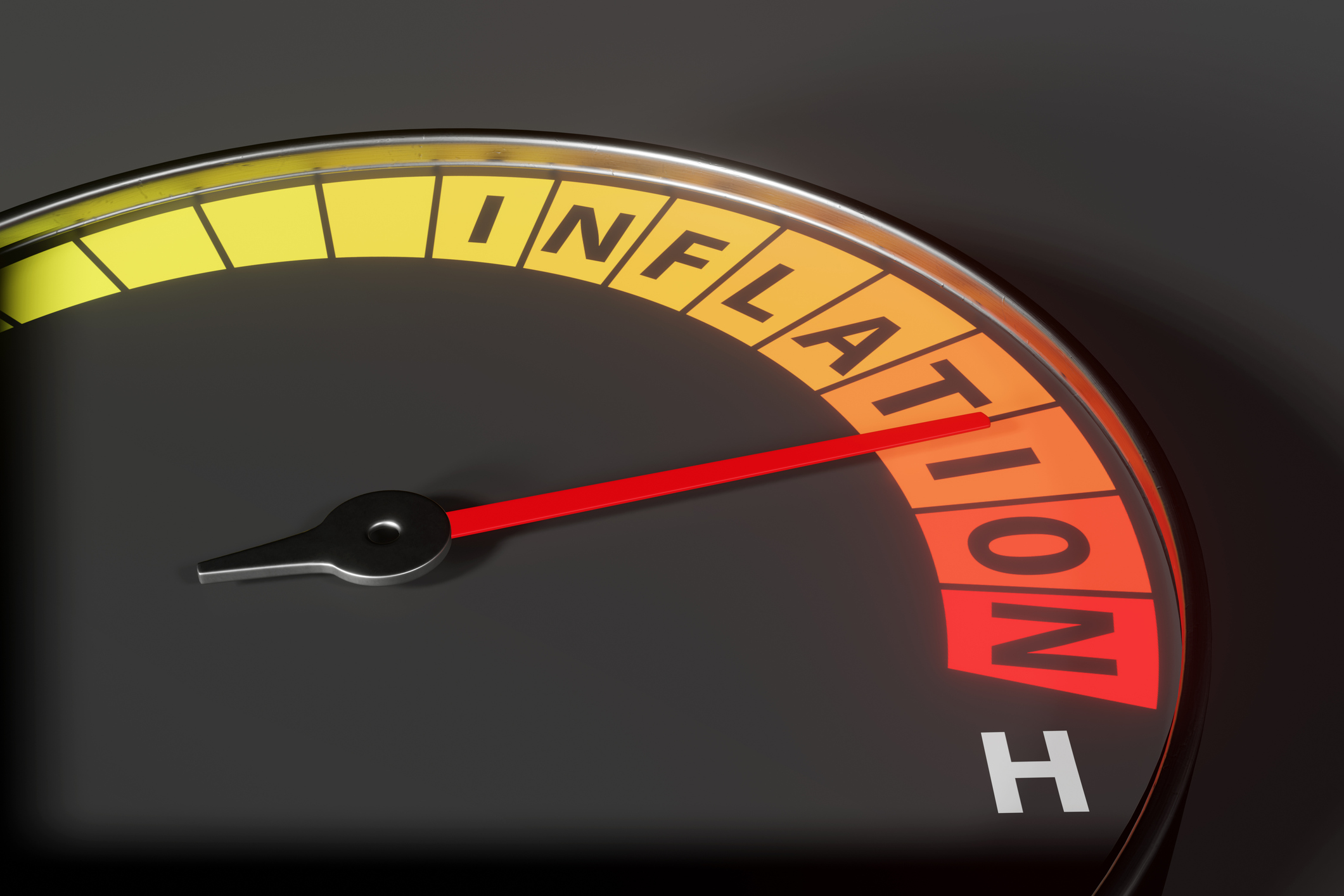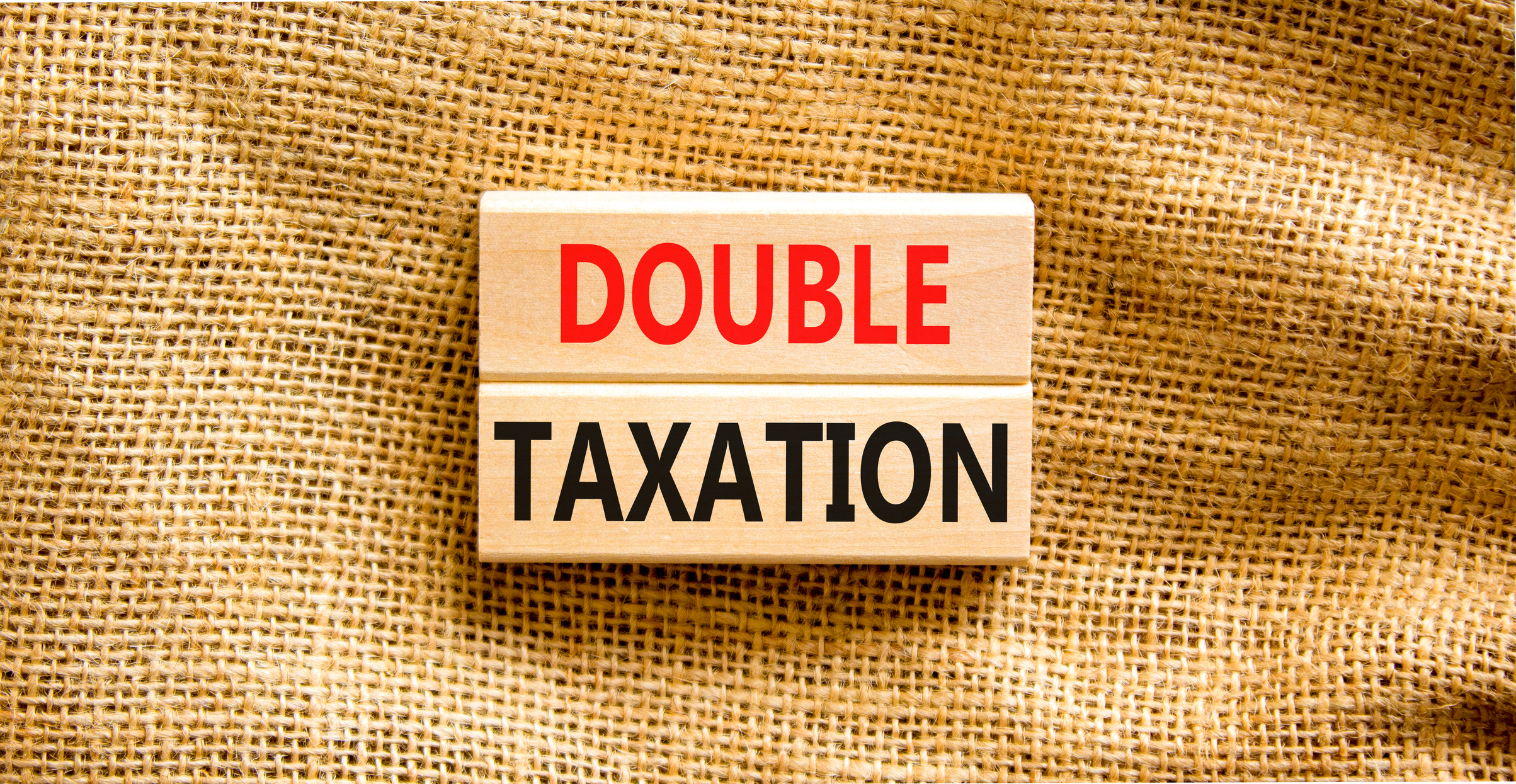District of Columbia Tax Guide
Explore the District of Columbia's tax rates for income, sales, property, retirement, and more. Learn how District of Columbia compares nationwide.

Kate Schubel

Profit and prosper with the best of Kiplinger's advice on investing, taxes, retirement, personal finance and much more. Delivered daily. Enter your email in the box and click Sign Me Up.
You are now subscribed
Your newsletter sign-up was successful
Want to add more newsletters?

Delivered daily
Kiplinger Today
Profit and prosper with the best of Kiplinger's advice on investing, taxes, retirement, personal finance and much more delivered daily. Smart money moves start here.

Sent five days a week
Kiplinger A Step Ahead
Get practical help to make better financial decisions in your everyday life, from spending to savings on top deals.

Delivered daily
Kiplinger Closing Bell
Get today's biggest financial and investing headlines delivered to your inbox every day the U.S. stock market is open.

Sent twice a week
Kiplinger Adviser Intel
Financial pros across the country share best practices and fresh tactics to preserve and grow your wealth.

Delivered weekly
Kiplinger Tax Tips
Trim your federal and state tax bills with practical tax-planning and tax-cutting strategies.

Sent twice a week
Kiplinger Retirement Tips
Your twice-a-week guide to planning and enjoying a financially secure and richly rewarding retirement

Sent bimonthly.
Kiplinger Adviser Angle
Insights for advisers, wealth managers and other financial professionals.

Sent twice a week
Kiplinger Investing Weekly
Your twice-a-week roundup of promising stocks, funds, companies and industries you should consider, ones you should avoid, and why.

Sent weekly for six weeks
Kiplinger Invest for Retirement
Your step-by-step six-part series on how to invest for retirement, from devising a successful strategy to exactly which investments to choose.
Navigating the complexities of state taxes can be daunting, but understanding Washington D.C.'s tax landscape is essential for residents and newcomers alike.
In this guide, we'll explore key components of the District of Columbia tax system, from income and sales taxes to property taxes and retirement benefits.
District of Columbia tax: Overview
The District of Columbia offers a mix of tax pros and cons.
From just $107.88 $24.99 for Kiplinger Personal Finance
Become a smarter, better informed investor. Subscribe from just $107.88 $24.99, plus get up to 4 Special Issues

Sign up for Kiplinger’s Free Newsletters
Profit and prosper with the best of expert advice on investing, taxes, retirement, personal finance and more - straight to your e-mail.
Profit and prosper with the best of expert advice - straight to your e-mail.
Its progressive income tax system ramps up quickly, which can mean higher bills for some. However, retirees get a break since the District doesn't tax Social Security benefits.
D.C. also has one of the lowest sales tax rates in the country, which can help keep everyday spending in check.
On the downside, property taxes in the District can be steep, especially for those inheriting property. The city also has one of the more significant estate taxes, which can be a surprise for heirs.
Let’s take a closer look at what D.C.'s tax landscape means for current and future residents.
In the news: The D.C. City Council recently enacted an emergency tax bill. District of Columbia residents will now miss out on the "senior bonus" deduction, overtime pay, and tipped tax breaks on their local income returns. For more information on how long this emergency legislation will last, check out Kiplinger's report: Emergency Tax Bill Ends $6,000 Senior Deduction and Tip, Overtime Tax Breaks in D.C..
[Data for this state tax guide was gathered from a number of sources including the Census Bureau, the state’s government website, the Sales Tax Handbook, and the Tax Foundation. Property taxes are cited as a rate percentage rather than the assessed value.]
District of Columbia income tax

The District of Columbia has a graduated individual income tax rate that ranges from 4% to 10.75%, according to the Tax Foundation.
District of Columbia retirement taxes
District of Columbia taxes in retirement: Social Security retirement and Railroad Retirement benefits are tax-exempt in Washington D.C. However, military retirement pay is fully taxable.
Income Tax on Taxable Income: Low of 4% (on less than $10,000) and a high of 10.75% (on more than $1,000,000)
- Social Security: Not taxable
- Pensions: Taxable
- 401(k) and IRA Distributions: Taxable
District of Columbia sales tax

Washington, DC has a 6% city sales tax rate.
Source: Sales Tax Handbook
- Groceries: Exempt
- Prescription drugs: Exempt
- Clothing: Taxable
How much are property taxes in DC?

In the District of Columbia, the average effective property tax rate is 0.61%, which is lower than in most states. Even so, homeowners face high median property tax bills, due in part to high home prices.
District of Columbia Property Tax Breaks for Retirees
Homeowners of all ages might qualify for Washington D.C.'s homestead exemption, but eligible homeowners 65 and older may also be able to reduce their property tax by 50%.
For 2025 property tax reductions, the total 2023 federal adjusted gross income of everyone living in the property, excluding tenants, must be less than $159,750.
Applicants must also have at least 50% ownership of the property and reside at the property to qualify.
Washington DC gas tax

Gasoline | $0.24 per gallon |
Diesel | $0.24 per gallon |
Source: Sales Tax Handbook
District of Columbia taxes on alcohol and tobacco
Product | Tax Amount |
|---|---|
Cigarettes | $2.50 per pack of 20 |
Other Tobacco Products | 67% of wholesale price |
Medical Marijuana | 5.75% |
Recreational Marijuana | 5.75% |
Source: Sales Tax Handbook
Product | Tax Amount |
|---|---|
Wine | $0.30 per gallon |
Beer | $0.09 per gallon |
Liquor | $1.50 per gallon |
Source: Sales Tax Handbook
District of Columbia estate and inheritance taxes
For 2025, Washington, D.C. estates valued over $4,873,200 are subject to a city estate tax. Rates in 2025 range from 11.2% to 16%.
Related Content
Profit and prosper with the best of Kiplinger's advice on investing, taxes, retirement, personal finance and much more. Delivered daily. Enter your email in the box and click Sign Me Up.

Katelyn has more than 6 years of experience working in tax and finance. While she specialized in tax content while working at Kiplinger from 2023 to 2024, Katelyn has also written for digital publications on topics including insurance, retirement, and financial planning and had financial advice commissioned by national print publications. She believes knowledge is the key to success and enjoys providing content that educates and informs.
- Kate SchubelTax Writer
-
 What to Expect from the January CPI Report
What to Expect from the January CPI ReportThe January CPI report will be released Friday morning. Here's what economists expect the inflation data to show.
-
 How to Open Your Kid's $1,000 Trump Account
How to Open Your Kid's $1,000 Trump AccountTax Breaks Filing income taxes in 2026? You won't want to miss Form 4547 to claim a $1,000 Trump Account for your child.
-
 In Arkansas and Illinois, Groceries Just Got Cheaper, But Not By Much
In Arkansas and Illinois, Groceries Just Got Cheaper, But Not By MuchFood Prices Arkansas and Illinois are the most recent states to repeal sales tax on groceries. Will it really help shoppers with their food bills?
-
 How to Open Your Kid's $1,000 Trump Account
How to Open Your Kid's $1,000 Trump AccountTax Breaks Filing income taxes in 2026? You won't want to miss Form 4547 to claim a $1,000 Trump Account for your child.
-
 In Arkansas and Illinois, Groceries Just Got Cheaper, But Not By Much
In Arkansas and Illinois, Groceries Just Got Cheaper, But Not By MuchFood Prices Arkansas and Illinois are the most recent states to repeal sales tax on groceries. Will it really help shoppers with their food bills?
-
 7 Bad Tax Habits to Kick Right Now
7 Bad Tax Habits to Kick Right NowTax Tips Ditch these seven common habits to sidestep IRS red flags for a smoother, faster 2026 income tax filing.
-
 New Plan Could End Surprise Taxes on Social Security 'Back Pay'
New Plan Could End Surprise Taxes on Social Security 'Back Pay'Social Security Taxes on Social Security benefits are stirring debate again, as recent changes could affect how some retirees file their returns this tax season.
-
 Living in One State, Working in Another: How to Avoid a Tax Season Headache
Living in One State, Working in Another: How to Avoid a Tax Season HeadacheState Tax Living and working in two states can take a heavy toll on your paycheck and give you a headache come tax time. Here's what to know.
-
 10 Cheapest Places to Live in Colorado
10 Cheapest Places to Live in ColoradoProperty Tax Looking for a cozy cabin near the slopes? These Colorado counties combine reasonable house prices with the state's lowest property tax bills.
-
 New Gambling Tax Rule Impacts Super Bowl 2026 Bets
New Gambling Tax Rule Impacts Super Bowl 2026 BetsTaxable Income When Super Bowl LX hype fades, some fans may be surprised to learn that sports betting tax rules have shifted.
-
 Should You Do Your Own Taxes This Year or Hire a Pro?
Should You Do Your Own Taxes This Year or Hire a Pro?Taxes Doing your own taxes isn’t easy, and hiring a tax pro isn’t cheap. Here’s a guide to help you figure out whether to tackle the job on your own or hire a professional.